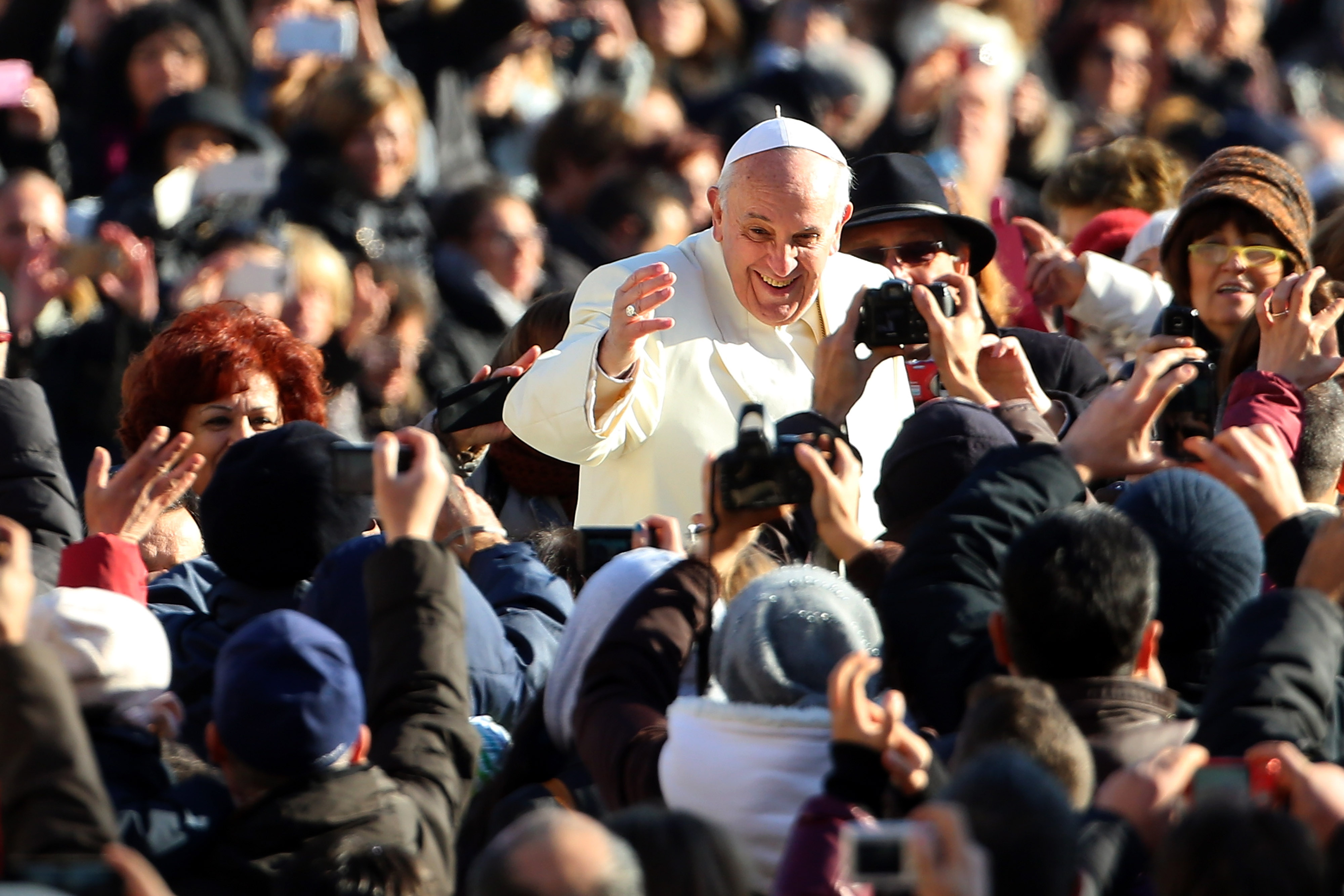4 tips from Pope Francis for Christians engaging in politics
Call it "The Francis Option"


A free daily email with the biggest news stories of the day – and the best features from TheWeek.com
You are now subscribed
Your newsletter sign-up was successful
These days, many Christians are afraid. Afraid that Western culture's steady drift away from their understanding of sexuality means outright hostility, and that traditionally Christian institutions may be driven, to some extent or another, to the margins of polite Western society.
Fear is never a good place to make decisions from, and so we have seen a gamut of Christian responses.
Many Christians believe that the solution is to withdraw to enclaves where they can live out their faith together. This view has been called the "Benedict Option" after the great monastic founder St. Benedict of Nursia. (Although some of its advocates deny that it is simply a withdrawal from society.)
The Week
Escape your echo chamber. Get the facts behind the news, plus analysis from multiple perspectives.

Sign up for The Week's Free Newsletters
From our morning news briefing to a weekly Good News Newsletter, get the best of The Week delivered directly to your inbox.
From our morning news briefing to a weekly Good News Newsletter, get the best of The Week delivered directly to your inbox.
Given that the other great monastic founder in the West was St. Francis of Assisi, and given that the Catholic Church has had two recent popes, Benedict and Francis, who each seem to have very different approaches to the same problem, it seems almost irresistible to call for a "Francis Option" to replace the Benedict Option.
So here are some pointers on how Christians can engage in politics, courtesy of the spirit of Pope Francis:
1. Don't be an ideologue. The question of whether and how Christians should engage in politics has always been, and always will be, a vexing one. Christians believe that this world is broken beyond (non-supernatural) repair, and that therefore all politics are, to some extent, corrupt (hard to argue with them on this score). But they also believe that they have a duty to try to do their best to fix it. How do you square this circle? Engaging in politics without losing your soul is a vexing problem for anyone with strong beliefs and wants to make the world a better place.
One key to engaging in politics for Christians is to remember Jesus' words that he is "the Truth" and also the source of everything that is good in the world. The belief that Truth is a person, not a doctrine, is a very useful one for Christians, because it disallows, on the one hand, relativism — there is a Truth, it exists — but, on the other hand, you can't be an ideologue, because every ideology is going to fall short of the Truth. At the same time, there is good in the world, and it comes from Jesus. So some ideologies are better than others. For example, whatever the flaws of liberal democracy, it seems to promote human flourishing at least somewhat better than communism.
A free daily email with the biggest news stories of the day – and the best features from TheWeek.com
That means that it's fine for Christians to embrace an ideology, and therefore a political movement or party, so long as they remember that this ideology cannot ever capture the Truth. In other words, it's fine to be a right-wing Christian, or a left-wing Christian, as long as you remember that your ideology will fall short of the Gospel — and you don't stay silent when it does.
2. Be joyful. This seems like an important point. Not just because Pope Francis' visible joy is a great part of his appeal, and people prefer upbeat ideological standard-bearers (recall Ronald Reagan's famous optimism), but also because it seems to be too often lost on Christians. Christians, after all, are supposed to believe that Jesus has won an ultimate victory against sin and death, and that all things work to its good purpose, and that history is mysteriously working towards a great final resolution where every wrong will be put to right. Joy is not just good politics and good marketing; it's warranted.
3. Emphasize the good. Jesus taught his disciples to let others press them into service, and he never said anything to anyone without understanding them first. Emphasizing the good in the other, firstly, forces us to be civil. But more importantly, it forces us towards empathy, which is a Christian virtue. Take, for instance, modern progressivism. There is no good Christian response to abortion that doesn't understand the plight of women with an unintended pregnancy and seemingly no alternative. And there is no good Christian response to the world that, while disagreeing with modern progressive ethics on sexuality, doesn't share its concerns for the poor and the marginalized.
4. Don't lose hope. The changes to today's culture may be mild, or they may be severe; they may last for a decade or they may last for centuries. But Christians are supposed to believe that Divine Providence is at work through history's ups and downs, and that with the help of the Holy Spirit, Christians can bring good out of tragedies, just like God brought about the salvation of the world through the Cross of Jesus Christ. Christians should be certain of only two things: whatever will happen will happen, and God is good. Putting those two certainties together should lead to a different outlook — one built on hope for the future, not fear.
Pascal-Emmanuel Gobry is a writer and fellow at the Ethics and Public Policy Center. His writing has appeared at Forbes, The Atlantic, First Things, Commentary Magazine, The Daily Beast, The Federalist, Quartz, and other places. He lives in Paris with his beloved wife and daughter.
